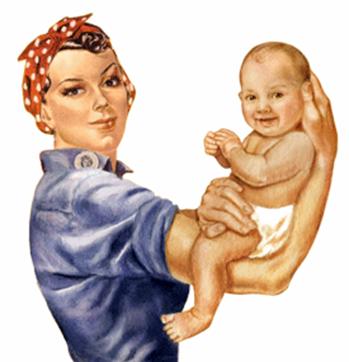You have no items in your cart. Want to get some nice things?
Go shoppingIf we believe developmental psychologists (and why shouldn’t we), the events we see and experience in our early adolescent years shape us for the rest of our lives: how we behave, what we value, whom we trust, etc. These experiences influence our perceptions and assumptions not only about the world around us, but also about the role of work within it.
Within any one generation, these experiences differ slightly depending on when and where you were born, your family’s socio-economic situation, and a multitude of other factors. However, Gen Y has shared many collective experiences, due in particular to the mass introduction of global communication via TV and later, the Internet. To find out what events have shaped the elder among Gen Y, which spans a generous 20 years, we have to look back in time. The three most prominent events have been:
- The widespread use and rapid development of technology.
- Escalating acts of terrorism and natural disasters: 9/11, tsunamis, Africa’s famine, mad cow disease, etc.
- The trend of working mums, improved gender equality and a strong pro-child culture.
As for the younger Gen Y-ers? Have a look around you and see what is happening today.
Let’s start with technology. (Does this really need explaining?)
My parents bought their first television when my sister, closer to 40 than 30, was 7. Back then, two Dutch channels were available, broadcasting from 5 p.m. till midnight. By the time I was 8 the first commercial channels had been launched in the Netherlands, and within a matter of years the number of Dutch channels had quadrupled and the broadcast hours increased tenfold. At secondary school, my sister wrote her essays by hand; I wrote mine on the computer. At university, she did her research in the library; I Googled mine.
Moving on to my second point:
Partly because of the widespread use of TV, Internet and digital cameras, and partly because of what’s been happening in the last twenty years, we have seen – not just heard, not just read about – dreadful events unfolding right before our eyes. As a consequence, just about everyone in our generation believes that terrible events can and do happen to anyone at any particular time. Accordingly, you’ll see that the trend has become to “live in the now”, to live life to the fullest each day. Now, do you start to see why some employers call us impatient and demanding? I like to say that we just have a sense of immediacy, that we are mindful about fulfilling our purpose in life… against a background of running time and capricious fates.
Moreover, our continuous and wide-ranging exposure to the many disasters affecting people around the world – I can still remember the TV ads and shows fundraising towards eradicating starvation in Africa and saving Asian tigers – has compelled us, young professionals especially, to take direct action, not just donate money. This is where our eagerness for volunteering and our willingness to make a difference come from, and also why you find us saying things like “CSR” (Corporate Social Responsibility).
 Lastly, working mums:
Lastly, working mums:
While Gen X saw social upheaval when mums started to work outside the home, when I was growing up it was generally accepted to have a working mum. And since for half the women it wasn’t really a necessity to work, I grew up with the assumption that work is a choice, especially once you start your own family. We grew up knowing that women are capable of being CEOs of large companies, astronauts or heads of states and raising a family at the same time; we just have to decide if that’s what we want to do. However, if nothing changes in the way organisations retain talent and organise the workspace, in the next decade we will see many highly talented young women leave to start their own businesses, or look for more flexible working patterns to achieve a work-life balance.
Now let’s go back again to the beginning where everything started, to where all human lives start – at birth.
In the 1970s, the contraceptive pill became hugely popular, which meant that having a baby became more of a decision than an occurrence. In the Western world, birth rates plummeted, and having fewer children meant that our parents could spread their love, attention and money more thickly, so we were stimulated and supported in all our interests and extracurricular activities. We were told, again and again: ”You can do anything you want to do.”
Can we?

About N/A N/A
Marjon was born into an entrepreneurial family in a Dutch city next to Rotterdam. She is intrigued by how organisations develop themselves and their people and how an organisational culture is formed. She studied International Business (MsC in Organisation & Management and Human Resource Management) in Tilburg, the Netherlands and Montreal, Canada, and Organisational Psychology in London. After her studies Marjon worked a number of years for Deloitte in the Netherlands. She now runs Excelerate Talent, a HR services organisation that offers coaching, training and consulting services. She also works with individuals to help them develop careers that make them happier and give them fulfilment, meaning and purpose.





“working mum” or “working mom”?
Hello guys more people are need the help of the window10. you are join the more connection of the window10. some people are working on this website https://gethelpwindows10.com if you are agree the terms of this website to connect the more option are use know.